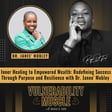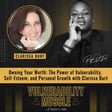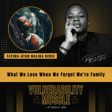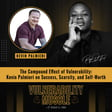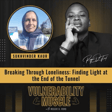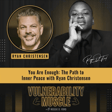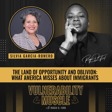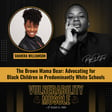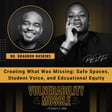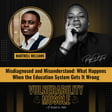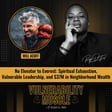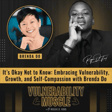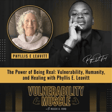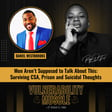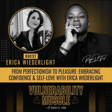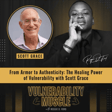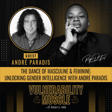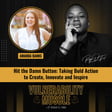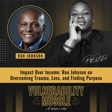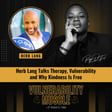
035 - Transform Your Health with a Plant-Based Diet: Olivier Mankondo's Journey to Reversing Chronic Disease & Losing 77 Pounds
In this powerful episode of Vulnerability Muscle, I sit down with Olivier Mankondo, a renowned weight loss and wellness coach, speaker, and author. Olivier shares his life-changing journey of losing 77 pounds (35 kg), reversing high blood pressure, chronic pain, and fatigue, and slowing the aging process—all through a plant-based diet and holistic lifestyle changes.
Since adopting plant-based nutrition in 2016, Olivier has not been sick a single day and has helped hundreds of people achieve optimal health and vitality. His approach combines mindset, nutrition, and intermittent fasting to help others lose weight naturally, boost energy, and eliminate chronic diseases.
If you’ve struggled with hypertension, high cholesterol, obesity, or low energy, this episode provides scientifically-backed insights and practical strategies to reclaim your health and longevity—without medication.
Resources Mentioned in This Episode:
📖 Plant-Based Nutrition: How It’s Going to Change Your Life by Olivier Mankondo – Available on Amazon: https://oliviermankondo.com/my-book-funnel-ebook-sales-page
FREE GIFT: Lose Weight Naturally & Improve Your Health!
Olivier Mondo’s Three-Step Weight Loss & Wellness Program:
1️⃣ Adopt a Winning Mindset: Shift from willpower to “why” power—find a meaningful reason to change.
2️⃣ Eat a Whole-Food, Plant-Based Diet: Focus on fruits, vegetables, legumes, grains, nuts, and seeds.
3️⃣ Incorporate Intermittent Fasting: Give your body time to heal and regenerate naturally.
👉 Download Olivier’s 7 Proven Tips for Weight Loss & Wellness: https://oliviermankondo.com/opt-in
Work With Olivier Mankondo & Start Your Health Journey Today
🌍 Website: www.oliviermankondo.com
📞 Book a Free Discovery Call: https://tidycal.com/oliviermankondo/discovery-call
